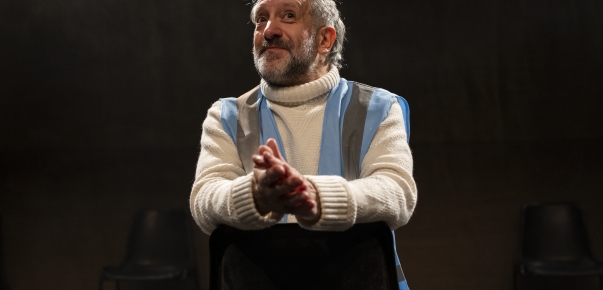"I write plays to make sense of the world around me, to help me better understand the people in it." | Matthew López Q&A
3 Oct 2024
Can you tell us a bit about your journey into writing? How did you get started?
I was always telling myself stories throughout my life. When I was a kid, I used to put on plays for myself with my plastic Smurf toys. Becoming a writer was a natural extension of that impulse. The great leap for me was being willing to begin to tell stories to other people. The inherent danger was then and remains: will other people be as fascinated by the story in my head as I am? It was the act of overcoming that fear that made me a writer.
In what unusual people, places or things do you find inspiration?
I find everyone and everything unusual (and thereby fascinating) so it’s difficult for me to differentiate. I think ultimately I write plays to make sense of the world around me, to help me better understand the people in it. I caught some heat for writing a white, gay, billionaire Trump supporter character in The Inheritance and choosing to give him dignity and learning to have compassion for him rather than destroy him as some people seem to preferred. And as a result, the character of Henry Wilcox is one of my favorite characters I’ve ever created because he’s so fundamentally different from me and my life experience. I don’t agree with him, I find his actions at times repellent. And yet I learned to find within him that which was worthy of love—something he had long denied himself. If I put a character into a play, it isn’t to destroy them, it’s to understand them better.
Reverberation was first produced in the US in 2015 and you've updated the text for this UK premiere. What has been at the forefront of your mind in the process of revisiting the play and what has it felt like to look at it again in 2024?
The world has fundamentally changed in the 9 years since its premiere and in the 17 years since I first wrote it. And while the play isn’t specifically about politics or current events, it is about people whose lives are shaped by those things. I wanted to ensure the audiences in Bristol had as little distance from the people in the play as possible, which is why I decided to set the play in London rather than in New York, where it was originally set. It was a fun, edifying experience to transpose it to this different key.
What stories are you drawn to now? Are they different from the stories you were drawn to at the beginning of your career?
Reverberation is one of my smallest plays—three characters, one set. After The Inheritance, the huge Broadway musical of Some Like it Hot and starting a filmmaking career, I do find myself interested in working on small scale in the theatre. But I think I’m still drawn to the same questions I’ve always been drawn to: who are we in relation to our communities, to our families, to ourselves. I used to write about what it means to be American. Now I find I’m writing about what it means to be an expatriate.
Are there any pieces of advice or wisdom in your journey as an artist that have particularly stuck with you? What were they and what impression did they make on you and your work?
Stephen King, in his book On Writing gives a simple yet crucial bit of advice: don’t read what you’ve written until you’ve finished writing it. That is good practical advice for any writer and one I wholeheartedly endorse. If you stop creating in order to review what you’ve done, you will inevitably find fault and risk not finishing. But I think it’s also wonderful advice for life. Nostalgia is a powerful and deadly drug. It has ruined lives and destroyed nations. Avoid it at all costs and keep moving forward.


